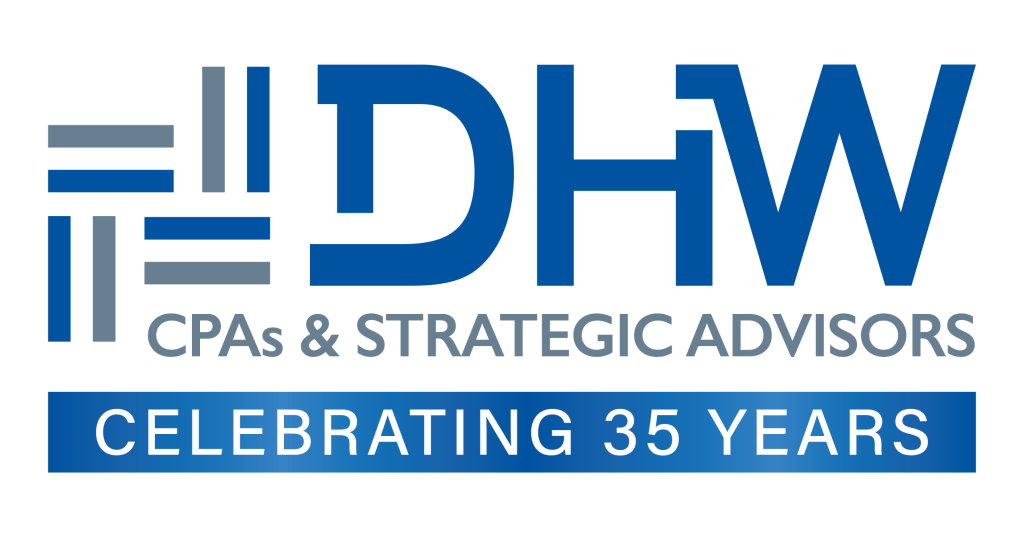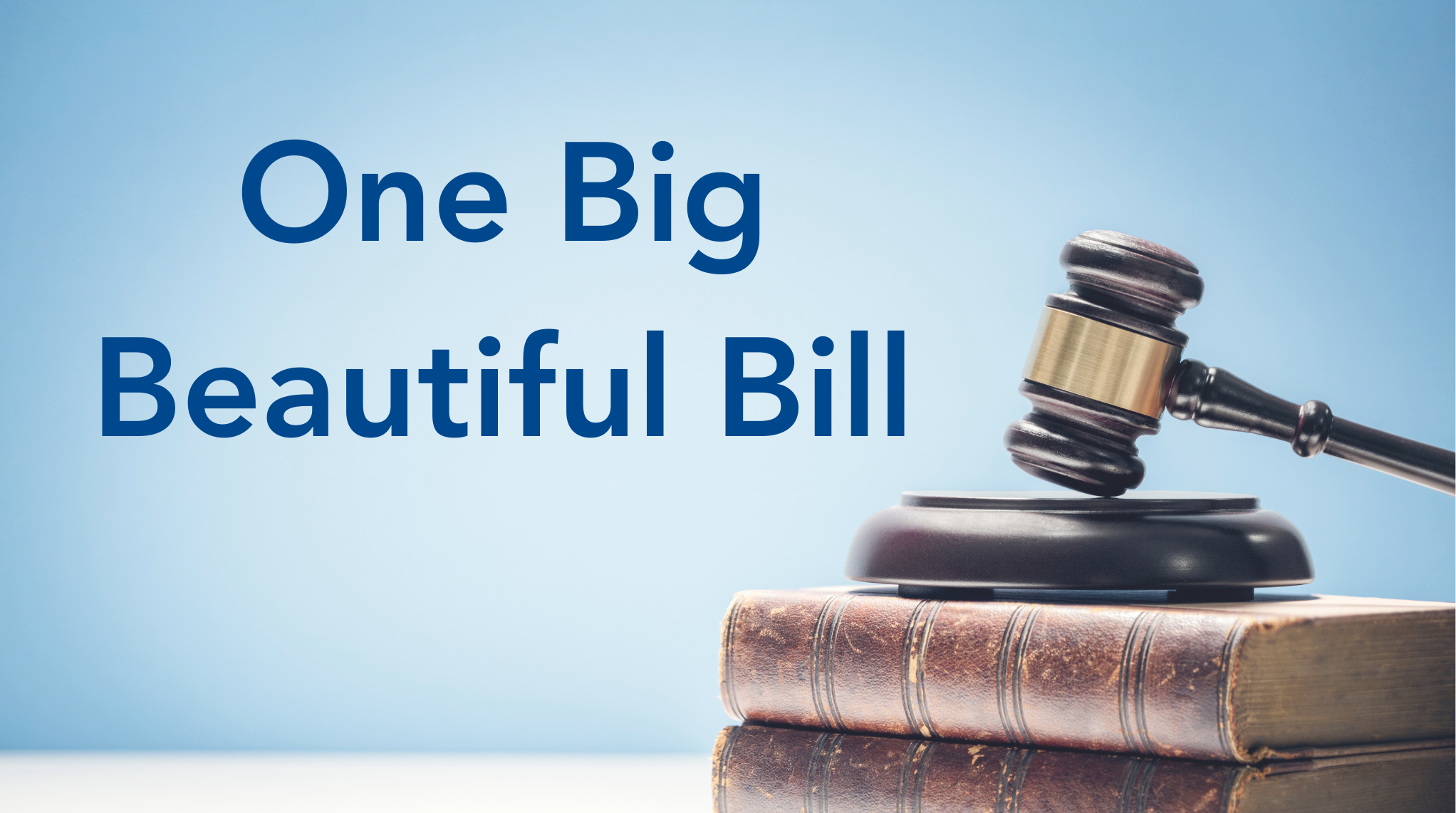On July 4, 2025, the One Big Beautiful Bill Act (OBBB) was signed into law. This sweeping piece of legislation makes many of the 2017 Tax Cuts and Jobs Act (TCJA) provisions permanent, while introducing new deductions and tax relief measures for businesses, individuals, and families. Below, we break down each major section of the bill to help you understand what’s changing, when it takes effect, and how it could affect your finances.
Business Tax Provisions
Business owners will find much to like in the OBBB, particularly when it comes to how investments and research expenses are handled. One of the most significant changes is the permanent extension of 100 percent bonus depreciation. This allows businesses to immediately deduct the full cost of qualifying equipment and technology rather than spread those deductions out over several years. This change applies retroactively to assets placed in service after December 31, 2021.
In a similar vein, companies can now immediately expense domestic research and development (R&D) costs rather than amortize them over five years. This provision also takes effect retroactively for certain small businesses, giving innovative firms more upfront cash to reinvest.
Another favorable change is the restoration of the EBITDA-based cap for interest expense deductions. Beginning in 2026, businesses can once again deduct interest expenses based on earnings before interest, taxes, depreciation, and amortization, which is especially beneficial for companies with significant capital expenditures.
For small and mid-sized businesses, the Section 179 expensing limit has been increased to $2.5 million, with phase-outs beginning at $4 million. This will help businesses deduct more of their smaller capital purchases upfront, improving cash flow.
Finally, the 20 percent deduction for pass-through income—originally set to expire after 2025—has been made permanent. This applies to sole proprietors, partnerships, and S corporations. Additionally, there’s now a $400 minimum deduction for filers with at least $1,000 in qualified business income, helping ensure smaller firms benefit too.
Individual Income Tax Changes
For individuals and families, many of the changes first introduced by the TCJA are now permanent under the OBBB. The seven-bracket tax structure (10, 12, 22, 24, 32, 35, and 37 percent) will remain in place, and inflation adjustments for the lower three brackets have been made more generous, offering modest relief to middle-income earners.
The standard deduction has been locked in at a higher level—$31,500 for joint filers in 2025, with annual inflation adjustments thereafter. While personal exemptions remain repealed, the expanded Child Tax Credit has been made permanent and increased to $2,200 starting in 2026. This credit will also adjust for inflation moving forward.
One notable adjustment is to the State and Local Tax (SALT) deduction. From 2025 through 2029, the cap will temporarily rise to $40,000 for households earning under $500,000. After that period, the cap reverts to the original $10,000 limit. The mortgage interest deduction, limited to mortgages of $750,000 or less, is also made permanent.
Although the Alternative Minimum Tax (AMT) remains, the higher exemption amount introduced by the TCJA stays in place. However, the income level at which the exemption begins to phase out will return to inflation-adjusted 2018 levels.
Employee and Worker Benefits
The OBBB introduces several temporary deductions aimed directly at workers, particularly those in tip-based or hourly jobs. From 2025 through 2028, employees who receive tips can deduct up to $25,000 in tip income. This is designed to ease the tax burden on workers in industries like hospitality, salons, and food service.
Additionally, employees working overtime may be eligible to deduct up to $12,500 in premium pay (or $25,000 for joint filers). Those who purchase a U.S.-built car for commuting purposes may deduct auto-loan interest during the same four-year period.
For seniors, the bill introduces a new deduction of $6,000 per qualifying taxpayer aged 65 or older with adjusted gross income under $75,000. This too is available from 2025 through 2028 and aims to provide targeted relief for older Americans on fixed incomes.
It’s important to note that these deductions are temporary and currently set to expire after 2028 unless extended by future legislation.
Estate and Gift Tax Updates
The estate and gift tax rules also saw a major update. Starting in 2026, the unified exemption for estate, gift, and generation-skipping transfers will double to $15 million per person (or $30 million for married couples), indexed for inflation.
This expanded exemption is permanent under the OBBB, giving high-net-worth families more room to pass on wealth without incurring federal estate tax. The portability provision allowing surviving spouses to use any unused exemption remains intact, and the top estate tax rate stays at 40 percent.
For individuals and families considering estate planning strategies—such as gifting, trusts, and business succession planning—this expanded exemption provides a critical window of opportunity to act.
When These Changes Take Effect
Most of the bill’s provisions take effect either retroactively to 2021 or begin in tax year 2025. The employee and senior deductions are available from 2025 through 2028. Permanent changes to the individual tax code, business deductions, and estate rules begin after 2025, unless otherwise noted.
Let DHW Help You Make Sense of the Changes
Tax law can be complex, and the OBBB includes a wide range of provisions that may benefit your business, family, or personal finances, but only if you know how to take advantage of them. At DHW, our team of experienced professionals is ready to help you assess the impact of these changes and develop a strategy that fits your unique situation.
Reach out to DHW today to schedule a consultation and make the most of the opportunities provided by the One Big Beautiful Bill Act.
Frequently Asked Questions About the One Big Beautiful Bill Act
What is the One Big Beautiful Bill Act (OBBB)?
The OBBB is a tax reform law passed in 2025 that makes many provisions from the 2017 Tax Cuts and Jobs Act permanent. It also introduces new deductions and credits for businesses, individuals, employees, and seniors.
When does the One Big Beautiful Bill Act take effect?
The bill was signed into law on July 4, 2025. Some provisions apply retroactively to 2021, while most take effect starting in tax year 2025. Estate and gift tax changes begin in 2026.
What are the key business tax changes in the OBBB?
Key business provisions include permanent 100 percent bonus depreciation, immediate expensing for R&D costs, restoration of the EBITDA-based interest deduction limit, expanded Section 179 expensing, and a permanent 20 percent pass-through deduction.
How does the OBBB affect individual income tax rates?
The bill makes the TCJA’s seven-bracket tax system permanent and increases inflation adjustments for lower brackets. The standard deduction is locked in at a higher level, and the expanded Child Tax Credit is permanently increased.
Does the OBBB raise or lower my taxes?
That depends on your specific situation. Many taxpayers will see continued or increased savings, especially through deductions, expanded credits, and more generous income thresholds. However, some temporary deductions expire after 2028.
Is the SALT deduction cap going away under the new bill?
No. The OBBB temporarily raises the cap to $40,000 for taxpayers earning under $500,000 between 2025 and 2029. After that, it returns to the $10,000 limit.
What employee deductions are included in the OBBB?
From 2025 to 2028, eligible workers can deduct tip income (up to $25,000), premium overtime pay, auto-loan interest for U.S.-built vehicles, and seniors can claim a new $6,000 deduction if they meet income requirements.
How did estate taxes change under the OBBB?
Beginning in 2026, the estate and gift tax exemption doubles to $15 million per person, or $30 million for married couples. This change is permanent and indexed for inflation.
Will the pass-through deduction go away after 2025?
No. The OBBB makes the 20 percent deduction for qualified business income (Section 199A) permanent, along with a new minimum deduction for smaller businesses.
How can I take advantage of the new tax rules in the OBBB?
To benefit fully, consult a qualified tax advisor. Businesses should reassess capital purchases and R&D spending, while individuals and families may want to review income strategies, charitable giving, and estate plans.

